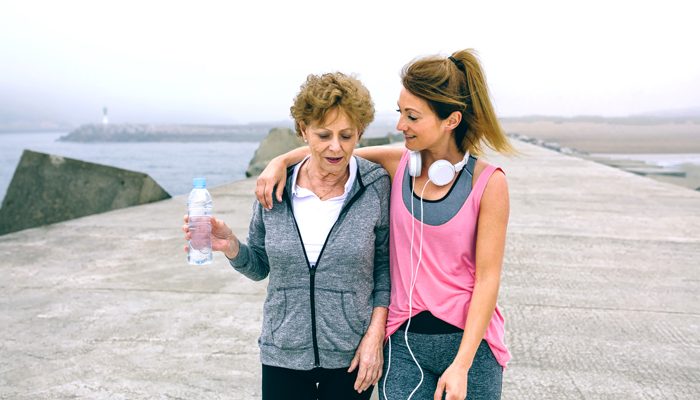5 TOP TIPS FOR OVERCOMING CANCER FATIGUE... A TIREDNESS LIKE NO OTHER
As a Cancer Rehabilitation Specialist, Kate Perkins witnesses the numerous detrimental effects of cancer treatment, not the least of all being the extreme fatigue that comes with fighting this disease.
Occupational Therapist (OT) and Founder of Lymphatic Solutions, Kate says prolonged and significant fatigue is one of the most common side effects her patients experience throughout their cancer treatment and beyond.
"Fatigue involves extreme tiredness resulting from mental or physical exertion or illness, and relates to emotional, physical and mental exhaustion, all of which are unfortunately common side effects of cancer-related treatment," Kate explains.
"Many of my patients tell me that during and after their cancer treatment they experience a fatigue like no other, and are constantly looking for ways to regain their energy. Common symptoms include:
Difficulty getting out of bed;
Providing patient education around fatigue management is a crucial element of cancer rehabilitation, and something that Kate is passionate about in her practice. She offers the following tips to help anyone experiencing cancer-related fatigue:
First of all, recognise and acknowledge your feelings of fatigue. This is a common side effect of cancer treatment which is experienced by almost all patients. There will be some days you will feel you have been hit by a bus! This is a completely normal and unfortunately common occurrence for anyone who is undergoing or has completed cancer treatment.
but not too much! Establish a good night-time sleeping pattern. Don't go to bed too late at night. Have two short naps (approx. 30mins each) scheduled into your day where possible. Too much sleep has the reverse effect and can actually decrease your energy levels. By having short rests before you become fatigued, you are banking up your energy stores.
Research has demonstrated that regular moderate exercise increases your energy levels, and eases symptoms of fatigue. But be sure to pace your exercise, don't over-do it. Activity is meant to invigorate, not wear you out. Keeping an exercise diary to document periods of fatigue, as well as periods of higher energy, will help you to manage the fatigue.
Prioritise daily activities and be conscious of where you expend your energy. Decide which activities are important, and which ones can be delegated. Conserving your energy for activities that take priority is a necessary way to help manage cancer fatigue.
Be kind to yourself! Avoid over-extending yourself with exercise and activities. You might find at times you have absolutely no energy and need to spend a couple of days in bed if you 'power' through tasks without taking breaks. Take one day at a time, it may take a few weeks or months before experiencing changes or improvements.

